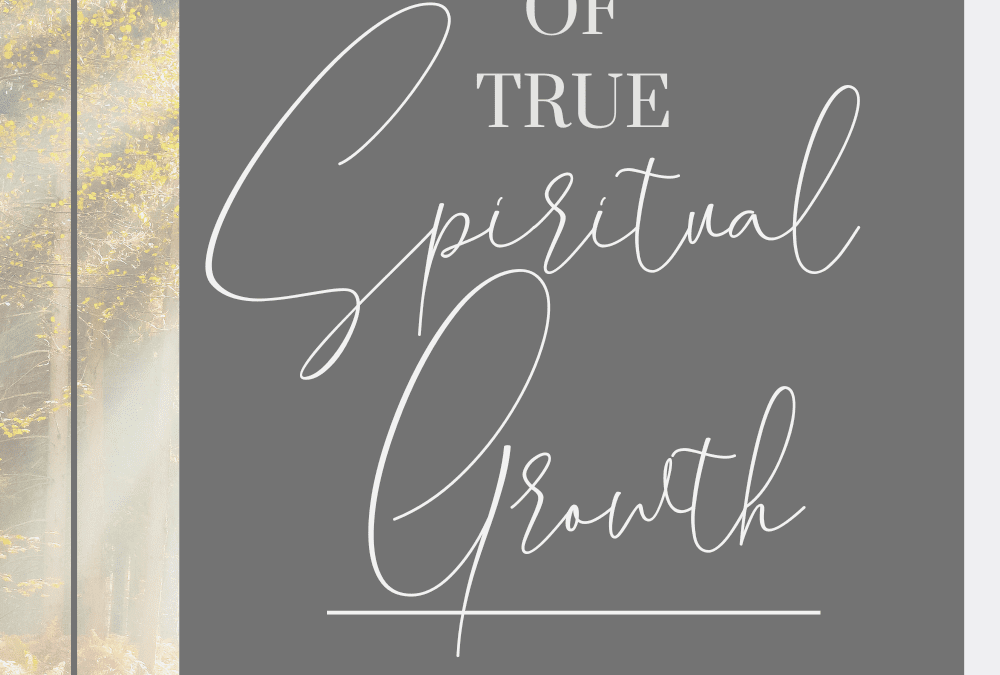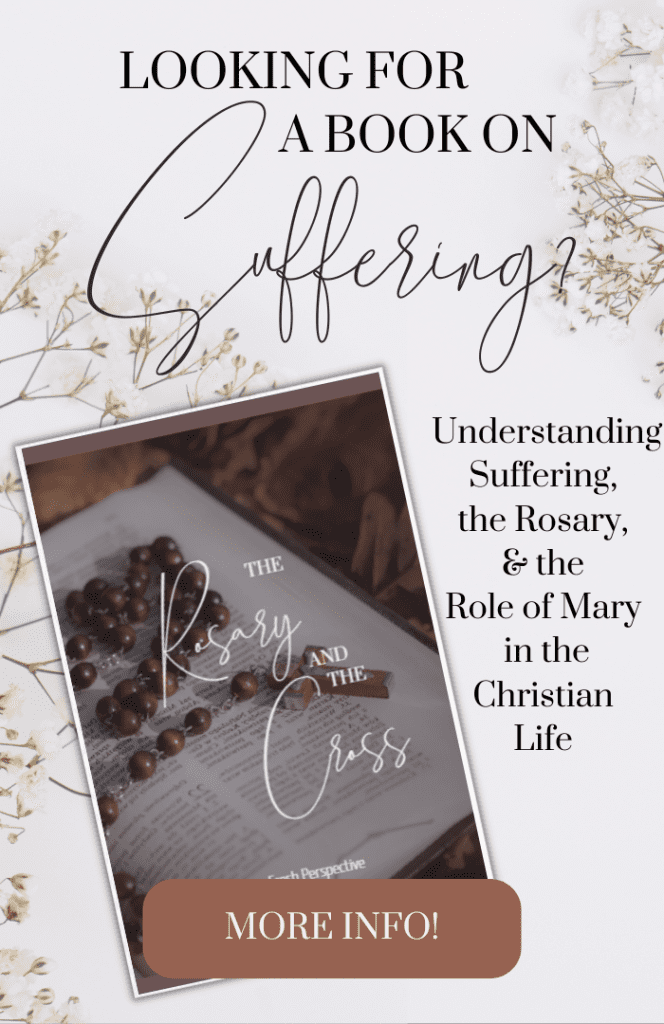Wouldn’t it be wonderful if we had a tool to help us gauge our growth in the area of union with God? Most people seem to believe that they should gauge their closeness with God by how touchy-feely they get about Him, how many spiritual consolations they receive in prayer, or how much ministerial work they do. But, I think, that as our lives have gotten more comfortable and convenient, we have lost our desperation for God. we have lost the urgency of seeking Him, and, therefore, collectively as a society, forgotten what it is like to find Him.
What if He’s more intense than anything we’ve ever experienced? Would you be surprised if someone told you that suffering plays a huge pivotal role in getting to know God? Somewhere deep down I think we all know, but we’ve become so complacent that we are afraid of discovering God. It’s time to ask ourselves if we are settling for anything less than the real deal.
Dealing with Fear
Theresa of Avila once famously said, “Lord if this is how you treat your friends, it’s no wonder that you have so few.”
Christianity can certainly feel like this at times but, I promise that’s only what it looks like from the outside.
A real relationship with God is like a secret club that looks scary from the outside so that only the truly brave will enter. Inside is an infinite cavern of secrets and indescribably precious treasures which you will never discover if you don’t take the plunge.
But, we trust Him because He is trustworthy.
Like Columbus venturing out in hopes of finding the new world. Yes, you can. You DO dare to brave the sea of monsters!
Take a deep breath, because we’re about to go under…
6 Things to expect when God brings you closer to Himself
#1 – Detachment
Ok, let’s start with an easy one. (she laughs nervously) 😅
In a heart full of all the things, there is no room for God.
simple as that. If you want more God in your heart, you are going to be forced to let go of other things. It will start small at first (but it will feel big). Like pulling up a dandelion in your front yard, you have to grab close to the root and begin to pull, not hard so as to break it off, but steady. The tap root goes deep and it is anchored by a thousand little tiny hairlike shoots that come off of it. Each one of those little hairline roots must break for the tap to release. As you pull you can feel them giving way one tiny hair at a time. To the weed, this is painful, a little part of its foundation snapping off every second, the soil around it beginning to heave at the pressure. It begins to fear for its life, and with good reason. Did we not desire more of God? He cannot grow in soil where the weeds choke Him out.
Note: Some “weeds” are small and come out relatively easily, but some are well established and take significant time and effort (on the part of the Gardener) to remove.
Yes, the Gardener does the work, for soil cannot tend itself, but we must cooperate. Our consent must be freely given. It is always and again a new choice, do I want to let Him in? Or would I rather hold on to my familiar weeds?
We can’t have both.
#2 – Humility
Though it may not be obvious to some, this is a natural progression from detachment. Recognizing that we are full of weeds that are zapping the nutrients from our fertile soul that we cannot tend ourselves, is a humbling process. It makes us feel our inadequacy before God keenly, and often provokes what many would describe as a type of depression. This is because they feel that this new sense of awareness of their weakness as a hopeless thing, a cause for self-loathing or despair… especially in a world that tells you you should be able to do everything you put your mind to (in this case, pursue perfection of your own accord). but that is is not true, you do NOT have to be capable of everything. This is a giant lie designed to make you recluse from God out of fear – but there’s no going back now, you’ve committed.
#3 – Fasting
In the truly brave, the desire for God prevails (over fear and discomfort). They are aware enough of what is happening to accept the pain of detachment as a necessary and hopeful thing. Consequently, a desire grows within them to do everything in their power to help the process along as much as possible, thus ensues a greater conviction of the necessity of fasting, and even a desire to fast. Fasting tells the body that something else is more important than what I want at this moment, and not only what I need but what I think I want. Fasting asks, how much do I love? What am I willing to give up for more of God?
A fantastic resource for beginning fasters is the book Sugar Fast, by Wendy Speake.
#4 – Mortification
Fasting does not necessarily always entail food. In the past it has always been coupled with a concept called mortification. Mortification isn’t an obsolete thing that only ancient monks were able to practice, rather it just a fancy word for fasting from other things (not just food), denying yourself certain unnecessary pleasures in other areas of your life where you feel some inordinate attachment to something besides God. ie, going to bed at a specific time, or waking up on time without the snooze button, taking shorter showers, abstaining from alcohol, screens, or other addictive, numbing behaviors (often called “guilty pleasures – you know what they are – and if you don’t, ask Him to enlighten you… you won’t be in the dark very long -for better or for worse)
#5 – Knowledge of your Weakness
Fasting and mortification have a tendency to bring out the “worst” in us. This is the reason why so many people think they are inherently bad, or at least pointless practices. Isn’t the purpose supposed to make you a better person? 💯 the first thing that happens when you start to fast (from food or anything else) is that you recognize how hard it is, how uncertain you feel if it matters or is helping anyone with anything, and how grumpy it makes you. (Yes, I know, because I am the queen of grumpy fasters.) Sometimes we fast with a (metaphorical) sign on our foreheads, “Don’t talk to me, I’m fasting” and other times we meticulously count every single action like a miser, attempting some kind of quid pro quo with God thinking “if I do this thing, you have to give me that thing”. This is where you may have heard the term “merit” before. We think that if we earn enough “merit” for our actions that we will somehow be able to oblige God into making things go our way. But, I’m afraid that’s not how it works. No, fasting and mortification done rightly, are done with the sole intention of saying:
“God, I am Yours. You are more important than my comfort and I love Thee more than food. Remove whatever attachments I am holding onto that I may have more space for you.”
Yes, you do not think of what you are giving up so much as what you hope to gain, and what you hope to gain isn’t favors or blessings or honor.. no, its Himself.
#6 – Love of the Cross
This one scares everybody! It sounds so horrible. How could one love suffering? Wasn’t the cross terrible? Wouldn’t it have been better if we could have prevented it? How noble would we be if we could just eliminate the cross (pats self on back)? “Look at me, I’m such a good person because I wish Jesus didn’t die”.
But, what did Jesus say when Peter told Him, “No, Lord, we will fight and die for you before we let you go to the cross.” (paraphrased) Jesus said, “Get behind me, Satan!” (for you speak not as God but as man”)
No, suffering isn’t some kind of evil to be avoided, it is an opportunity to show love.
When I do something I don’t like for the good of someone else, that action shows far more love than an action that is tainted by ease or self-concern. There is no greater love than to die, offering ones death (whether physical or figurative) for the good of another. (Physical death would be like taking a bullet for someone, and figurative would be more like parenting) So, no. We do not love the Cross in itself. This is not a macabre, masochistic pleasure derived from pain, no. We are talking about a view of suffering (or the Cross) as an opportunity or an invitation- an opportunity to show love to another by joyfully embracing any difficulties I face and trusting that God can use whatever I present as long as it is truly my best offering, and as an invitation to intimacy with a suffering God.
My God, grant that I may love Thee enough to suffer well.
One final point
Remember #3 – an increasing awareness of your weakness? The harder you try to grow closer to God on your own, the more impossible it will feel and the more mistakes you will make. The more mistakes you make, the more humbled you will be by each subsequent one. Something will have to give. You cannot do this yourself, and yet you cannot hold back. if you want Him to take over, you must let go, and then He will ravage you with a love so intense it will leave you breathless and speechless, wonderstruck, and helplessly happy sobbing tears of joy in a crumpled heap on the ground.
It may not be pretty, and definitely isn’t probably what you were expecting or hoping for, this closeness with God business. But, oh my goodness, my darling, it is worth it to take the leap.


